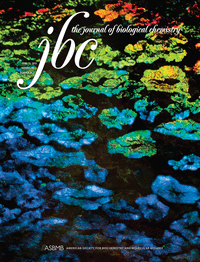 Researchers have withdrawn a 2010 article in the Journal of Biological Chemistry about an immune regulator.
Researchers have withdrawn a 2010 article in the Journal of Biological Chemistry about an immune regulator.
The paper was pulled without any explanation (in standard JBC style). Here’s the complete notice:
This article has been withdrawn by the authors.
The study’s authors were based out of Shandong University Medical School, Jinan General Hospital of Jinan Command and Duke University Medical Center.
Two of the authors have had previous papers retracted.
Co-authors Chengjiang Gao at Shandong University Medical School and Paul Kuo, the current chair of surgery at Loyola (and former surgery chief at Duke), worked together on a 2006 study that was retracted from Biochemical Journal after the editors noticed that an image of an “important negative control” had been shoddily photoshopped.
The latest JBC paper, “Differential expression of intracellular and secreted osteopontin isoforms by murine macrophages in response to Toll-like receptor agonists,” looked at the molecular mechanisms of osteopontin, a protein that regulates immune cell responses. It’s been cited 32 times, according to Thomson Scientific’s Web of Knowledge.
Although the notice doesn’t provide any explanation for the withdrawal, commenters on PubPeer have raised questions about some of the images.
The editor-in-chief of the JBC, Martha Fedor, declined to explain why the study was withdrawn.
These articles were withdrawn by the authors, not retracted by the publisher. I’m not able to answer your questions because JBC editorial reviews are confidential. I suggest that you contact the authors for further information.
We’ve reached out to Gao, the corresponding author. We’ll update the post if he responds.
Like Retraction Watch? Consider supporting our growth. You can also follow us on Twitter, like us on Facebook, add us to your RSS reader, and sign up on our homepage for an email every time there’s a new post. Click here to review our Comments Policy.